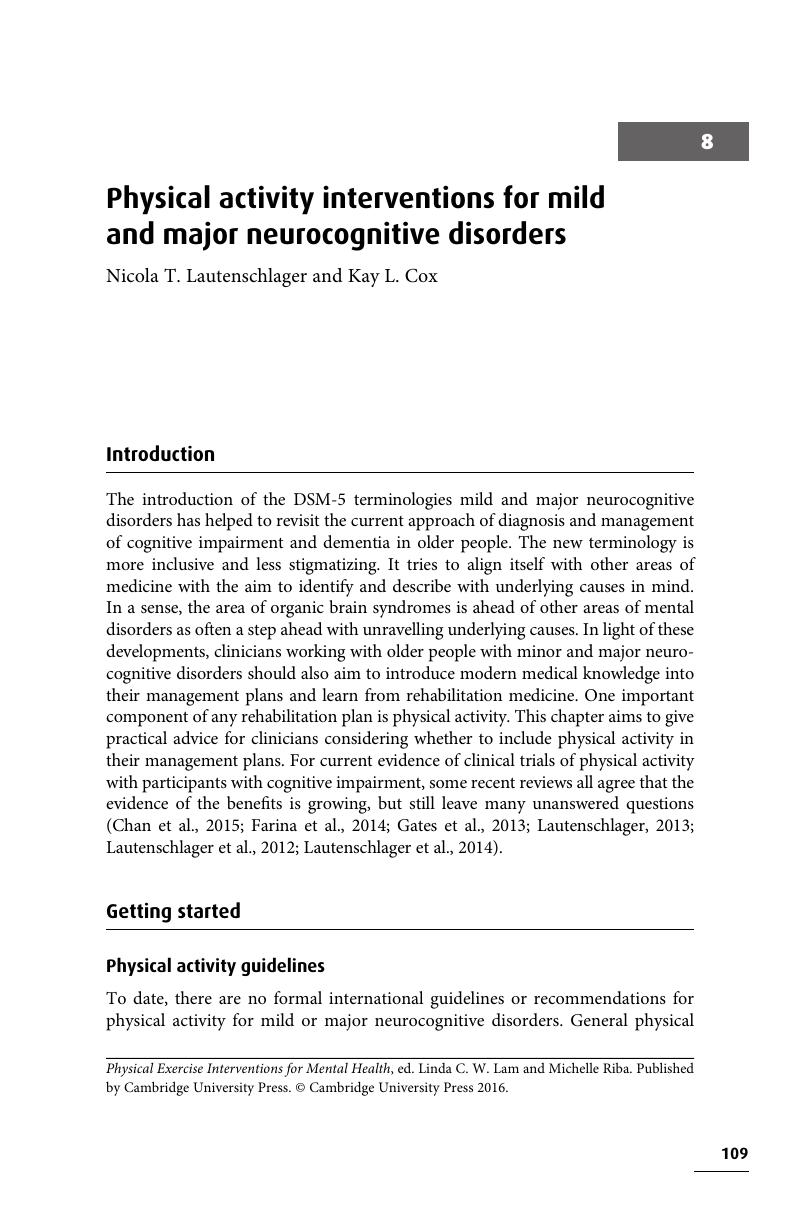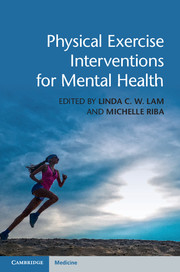Book contents
- Physical Exercise Interventions for Mental Health
- Physical Exercise Interventions for Mental Health
- Copyright page
- Contents
- Contributors
- Foreword
- 1 Recent developments of physical activity interventions as an adjuvant therapy in mental disorders
- 2 Exercise interventions for youth with psychiatric disorders
- 3 Exercise for the treatment of depression
- 4 Activity intervention for first-episode psychosis
- 5 Aerobic exercise for people with schizophrenic psychosis
- 6 Physical exercise to calm your ‘nerves’
- 7 The Treatment with Exercise Augmentation for Depression (TREAD) study
- 8 Physical activity interventions for mild and major neurocognitive disorders
- 9 Yoga-based interventions for the management of psychiatric disorders
- 10 Physical exercise for brain health in later life: how does it work?
- 11 Depression and cardiovascular risk: exercise as a treatment
- Index
- References
8 - Physical activity interventions for mild and major neurocognitive disorders
Published online by Cambridge University Press: 05 February 2016
- Physical Exercise Interventions for Mental Health
- Physical Exercise Interventions for Mental Health
- Copyright page
- Contents
- Contributors
- Foreword
- 1 Recent developments of physical activity interventions as an adjuvant therapy in mental disorders
- 2 Exercise interventions for youth with psychiatric disorders
- 3 Exercise for the treatment of depression
- 4 Activity intervention for first-episode psychosis
- 5 Aerobic exercise for people with schizophrenic psychosis
- 6 Physical exercise to calm your ‘nerves’
- 7 The Treatment with Exercise Augmentation for Depression (TREAD) study
- 8 Physical activity interventions for mild and major neurocognitive disorders
- 9 Yoga-based interventions for the management of psychiatric disorders
- 10 Physical exercise for brain health in later life: how does it work?
- 11 Depression and cardiovascular risk: exercise as a treatment
- Index
- References
Summary

- Type
- Chapter
- Information
- Physical Exercise Interventions for Mental Health , pp. 109 - 123Publisher: Cambridge University PressPrint publication year: 2016

